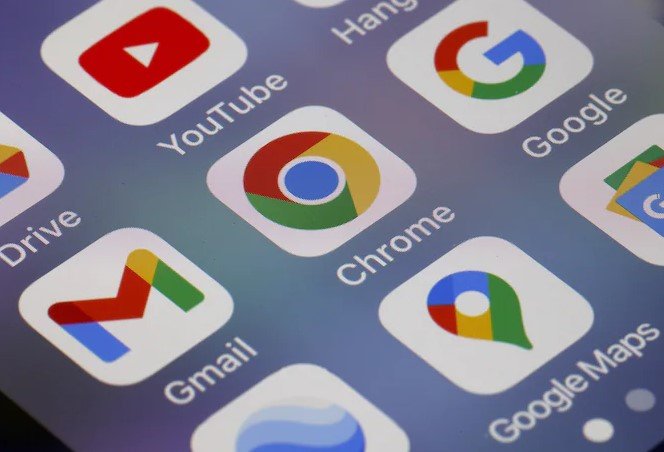Google’s move to embed Gemini AI in Chrome is raising red flags — and Mozilla thinks the internet’s playing field could tilt dangerously out of shape.
The folks at Mozilla aren’t usually ones to sound the alarm early. But this time, they’re openly worried. Google’s plans to wire its Gemini AI model directly into Chrome are beginning to look less like innovation and more like a subtle power grab, according to Firefox’s makers. Mozilla believes it could reshape how developers build for the web — and not in a good way.
It’s not just about browser features anymore. Mozilla’s engineers see Google’s push as a potential wedge that could deepen Chrome’s dominance, sideline rivals, and quietly usher in a new wave of browser wars, with AI as the battleground.
Chrome Wants to Speak, Write, Summarize — and Think for You
So what exactly is Google doing here?
Over the past few months, the search giant has started introducing a suite of AI-powered APIs right into Chrome. These aren’t just your average toolkits — they link directly to Gemini Nano, Google’s light-weight AI model that runs locally on machines.
Here’s what’s already rolling out:
-
Translator API for real-time translations
-
Language Detector API to sniff out what language you’re typing in
-
Summarizer API to boil down long reads
-
Writing Assistance APIs for helping you compose or rewrite
-
Prompt API to process natural language queries via Gemini Nano
-
Proofreader API for error checking and suggestions
Now, on paper, these sound handy. Translate a foreign blog post? Clean up your grammar mid-email? Summarize a 3,000-word webpage in a click? What’s not to like?
But Mozilla says: hold up. There’s more to this than convenience.

Mozilla Fears a Chrome-Centric Web Is Brewing
Brian Grinstead, a senior principal engineer at Mozilla, didn’t mince words. In blog posts over the past two weeks, he laid out exactly why this has become a headache for Firefox and other browsers.
Chrome doesn’t just expose an API and let developers plug in whatever AI model they want. Instead, it anchors everything around Gemini Nano. So if you’re building a browser extension or web app using these APIs, you’re effectively building it with Gemini in mind.
That’s a problem. Why? Because it means those same apps might not behave the same — or at all — on browsers like Firefox or Safari. Even if Mozilla supported the exact same APIs, they’d likely be routed through a different AI model, which might generate different responses. That could break features or just make them feel “off.”
One-paragraph pause here.
Basically, Mozilla’s saying this: developers might start coding with Chrome-first thinking. And once that happens, good luck keeping the web open.
A Familiar Fight, But with a Twist
If this is all starting to feel like déjà vu, well, you’re not wrong.
Back in the 2000s, Microsoft bundled Internet Explorer into Windows and made life hard for Netscape and friends. Fast-forward two decades, and now it’s Google — armed not with OS monopolies, but with an AI model and the world’s most-used browser.
Mozilla’s been part of discussions around these APIs for over a year. But according to internal chatter and public notes, they’d hoped for a different outcome — something more neutral, more adaptable, and less tightly coupled with Gemini.
That didn’t happen. Last week, Mozilla officially shifted from curiosity to criticism.
AI on the Web: Pick Your Model, or Pick a Side?
Here’s the crux of Mozilla’s gripe — and it’s surprisingly philosophical for a tech squabble.
They argue that the web was never supposed to favor one vendor’s brain over another. In their eyes, the moment APIs are tied to a specific AI model — and not left open-ended — the entire idea of platform neutrality takes a hit.
Grinstead even floated a scenario: sure, Firefox could try to ship Chrome’s AI model. But he called that idea “backwards” — a workaround that completely misses the point.
“This isn’t how the web is meant to work,” he said. “And it points to a broader set of concerns about market competition.”
In short, the problem isn’t just technical. It’s philosophical. Who gets to decide how the web thinks?
Google’s Move: Convenience or Control?
From Google’s perspective, this all likely looks like progress.
Why wait for cloud servers if you can run Gemini Nano right on your device? Why limit users to external tools when the browser itself can help you write, translate, proof, and more? It’s fast, private, and localized.
But convenience has a cost.
By hardwiring Gemini into Chrome, Google subtly reshapes the playing field. And Mozilla says this sets a dangerous precedent — one where future APIs could lean more and more into model-specific behavior. That doesn’t just make it harder for Firefox to compete; it could make it harder for anyone to imagine a web beyond Chrome.
Table: Browser Market Share (2025 Q1) – StatCounter
| Browser | Global Share (%) |
|---|---|
| Google Chrome | 65.3% |
| Apple Safari | 18.9% |
| Microsoft Edge | 5.6% |
| Mozilla Firefox | 3.3% |
| Others | 6.9% |
With Chrome already holding two-thirds of global browser traffic, any structural advantage — like native AI support — risks cementing that lead even more.
Is This the Start of Browser Wars 2.0?
We’re not there yet. But things are heating up.
Mozilla’s opposition could signal the start of a broader pushback — not just from Firefox, but from others who believe in an open, browser-agnostic web. The question now is whether Google’s AI strategy ends with Chrome — or whether it spreads deeper into how we all interact with the internet.
And somewhere in the middle of it all, users just want their browser to work.








